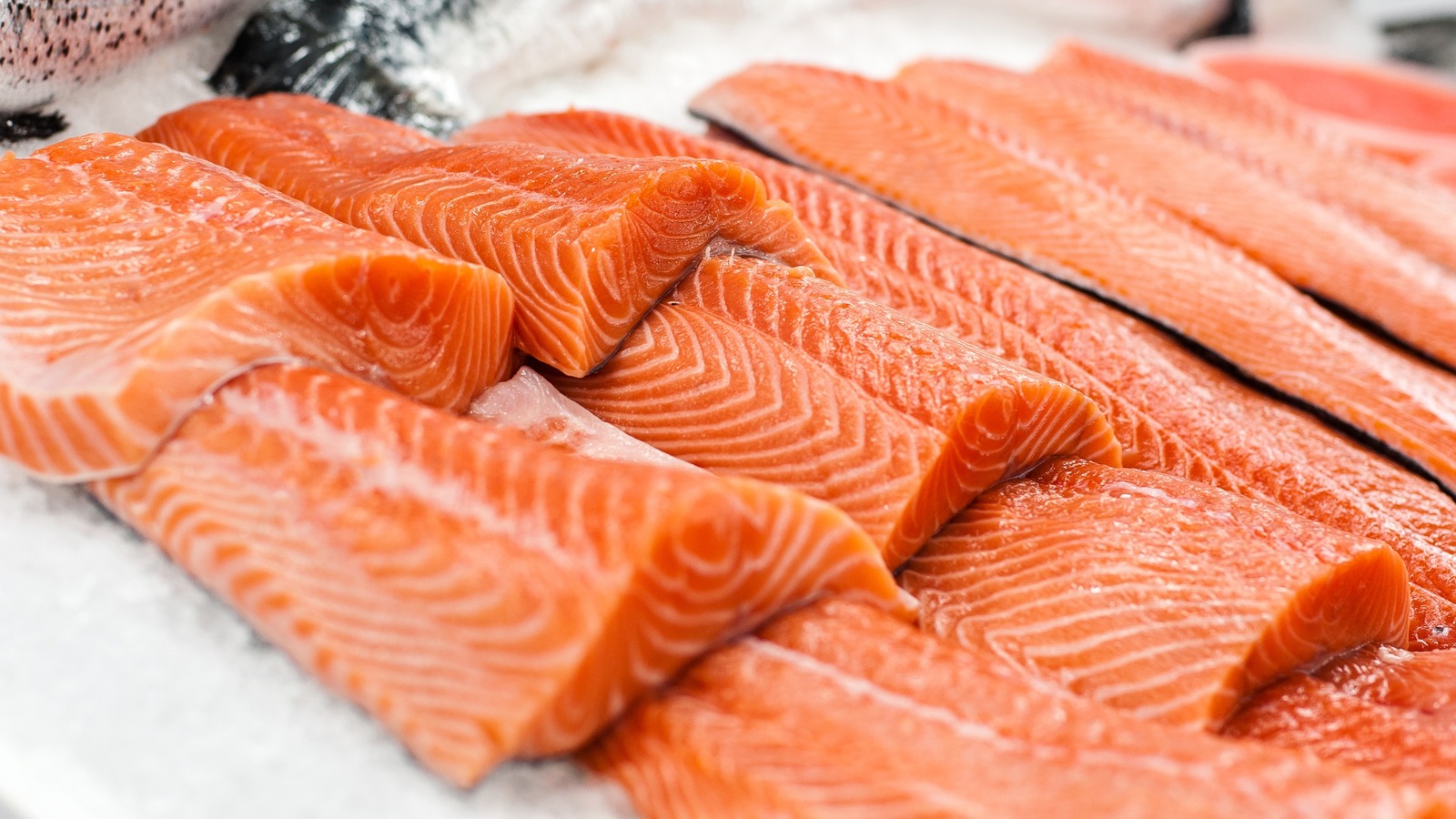Is It Safe to Eat Kroger Salmon Raw?
Salmon is a popular fish loved for its rich, fatty texture and omega-3 content. Many people enjoy eating salmon raw in dishes like sashimi and sushi. But is it safe to consume raw salmon from the grocery store chain Kroger? Let’s take a closer look.
Understanding the Risks of Raw Salmon
Eating any raw seafood carries some risk of contamination from bacteria, parasites, and viruses. Salmon may contain the following pathogens:
-
Salmonella – The bacteria Salmonella can cause food poisoning with symptoms like diarrhea, fever, and abdominal cramps.
-
Anisakiasis – This parasitic worm can live in salmon muscles. If ingested, it can burrow into the stomach lining.
-
Hepatitis A – Raw seafood may contain traces of the hepatitis A virus, which affects the liver.
To reduce risks, salmon intended for raw consumption should be frozen first to kill any parasites. Proper handling and storage is also key. Purchasing high-quality salmon from a reputable source can further minimize concerns.
Evaluating Kroger’s Salmon Safety Practices
So how does Kroger salmon stack up when it comes to safety? Here are some of the measures Kroger takes:
Strict Supplier Guidelines
Kroger works closely with its seafood suppliers to implement strict food safety standards. The company audits suppliers and facilities to ensure proper protocols are followed.
Flash-Frozen Salmon
Kroger sells both fresh and frozen salmon. Flash-freezing helps kill parasites and prevents quality degradation.
Proper in-Store Handling
Kroger seafood employees follow food safety guidelines like keeping fish chilled on ice and using separate cutting boards/utensils for ready-to-eat items.
Farmed vs. Wild-Caught Salmon
Kroger sells both farmed (aka farm-raised) and wild-caught salmon. Farmed salmon is considered lower risk since the fish are raised in controlled environments. Wild salmon may have increased exposure to parasites and viruses.
Seafood Sustainability Efforts
By partnering with organizations like the Aquaculture Stewardship Council (ASC), Kroger works to source salmon raised in ways that protect the environment and public health.
Ultimately, Kroger makes an effort to provide fresh, high-quality salmon that follows food safety recommendations. But there is always some risk of pathogens when consuming raw fish, even from the best grocery stores.
Tips for Safely Eating Kroger Salmon Raw
If you wish to eat Kroger salmon raw, here are some tips to minimize potential risks:
-
Choose sushi-grade or flash-frozen salmon, which is frozen at ultra-low temps to kill parasites. Avoid fresh salmon.
-
Look for thick, firm pieces without discoloration or strong odors.
-
Store salmon on ice or in the coldest part of the fridge for no more than 2 days.
-
Rinse salmon under cold water and pat dry before preparing/eating raw.
-
Avoid cross-contamination by keeping raw salmon separate from cooked foods. Disinfect any surfaces the raw salmon touched.
-
If immunocompromised or pregnant, avoid raw salmon due to higher vulnerability.
-
Cook salmon thoroughly to an internal temperature of at least 145°F to kill bacteria and parasites. Leftovers should be reheated to 165°F.
Assessing Your Personal Risk Level
Your personal risk tolerance for eating raw salmon from Kroger depends on several factors, including:
-
Age and health status – Children, elderly, pregnant women, and those with weakened immune systems are most vulnerable to foodborne illness.
-
Where you live – Landlocked states see fewer parasite issues in fish than coastal regions.
-
Type of dish – Quickly seared or cured raw salmon is lower risk than sashimi-style preparations.
-
Amount consumed – Eating raw salmon infrequently in small portions is safer than consuming multiple servings.
Weigh your individual risk factors and preferences when deciding whether to enjoy Kroger salmon raw. Follow the food safety tips provided in this article to make educated decisions.
Alternative Ways to Enjoy Kroger Salmon
If you still feel uncertain about raw Kroger salmon, consider these tasty alternatives:
-
Lightly cooked salmon – Sear on high heat until just opaque throughout for rare preparation.
-
Smoked salmon – Heat-treated cold-smoked salmon reduces pathogen risks.
-
Cured salmon – Gravlox-style cured salmon is salt-brined or marinated.
-
Canned salmon – Commercially sterilized canned salmon is fully cooked.
-
Cooked salmon – Grilled, baked, or sautéed salmon providestexture and flavor.
Conclusion
Kroger dedicates significant effort toward offering fresh, high-quality salmon in its seafood department. However, as with any raw seafood, there is always some level of risk when eating salmon raw. Use your best personal judgement and follow food safety best practices to make smart, informed decisions regarding raw Kroger salmon. Cooked preparations provide guaranteed protection against foodborne illnesses.

What Types Of Fresh and Frozen Salmon Can You Eat Raw? Walmart? Whole Foods?
FAQ
Can you eat raw Kroger salmon?
Is it okay to eat raw salmon from the supermarket?
Is my salmon safe to eat raw?
What fish is safe to eat raw from grocery store?
